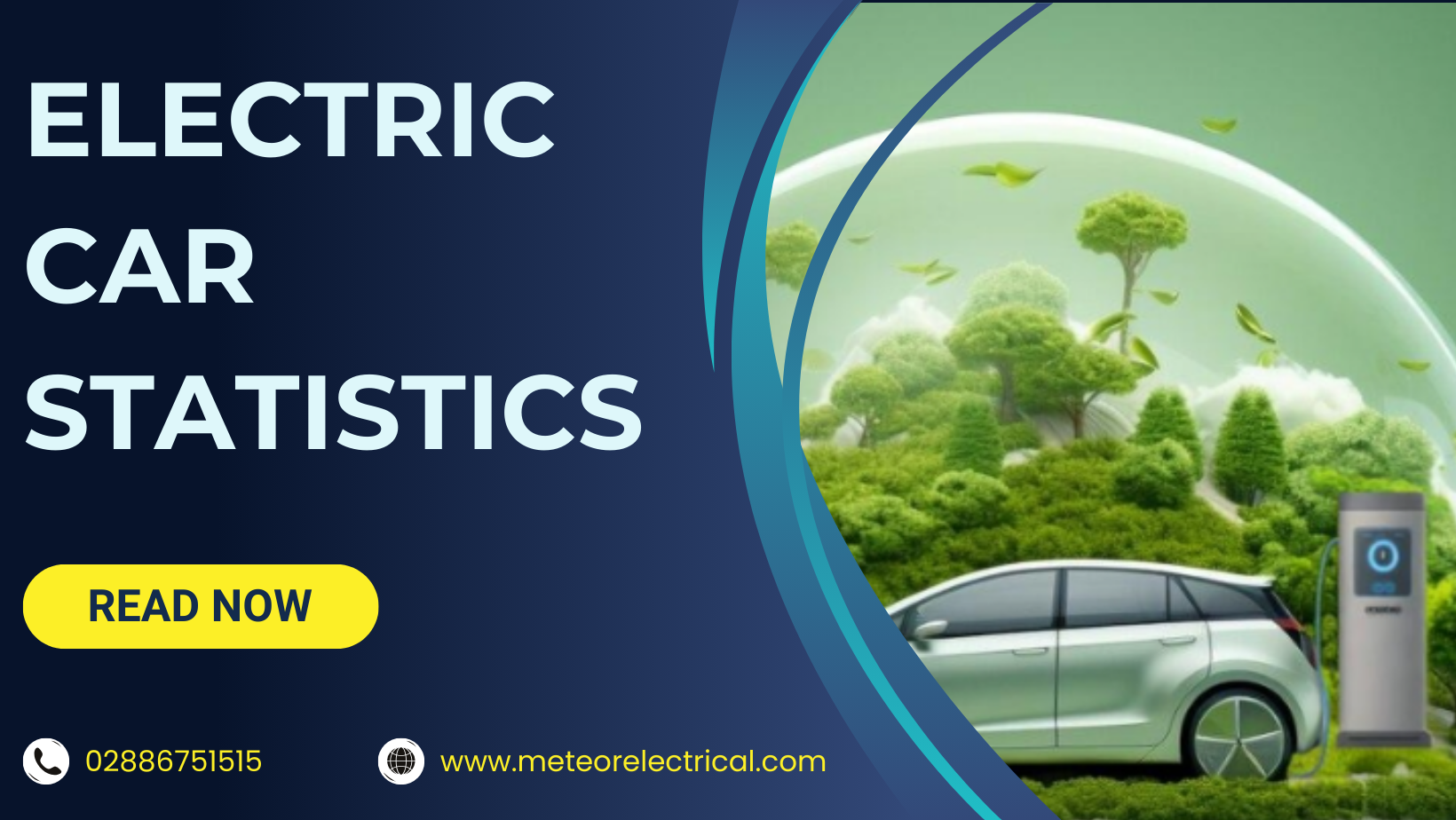Electric Car Statistics
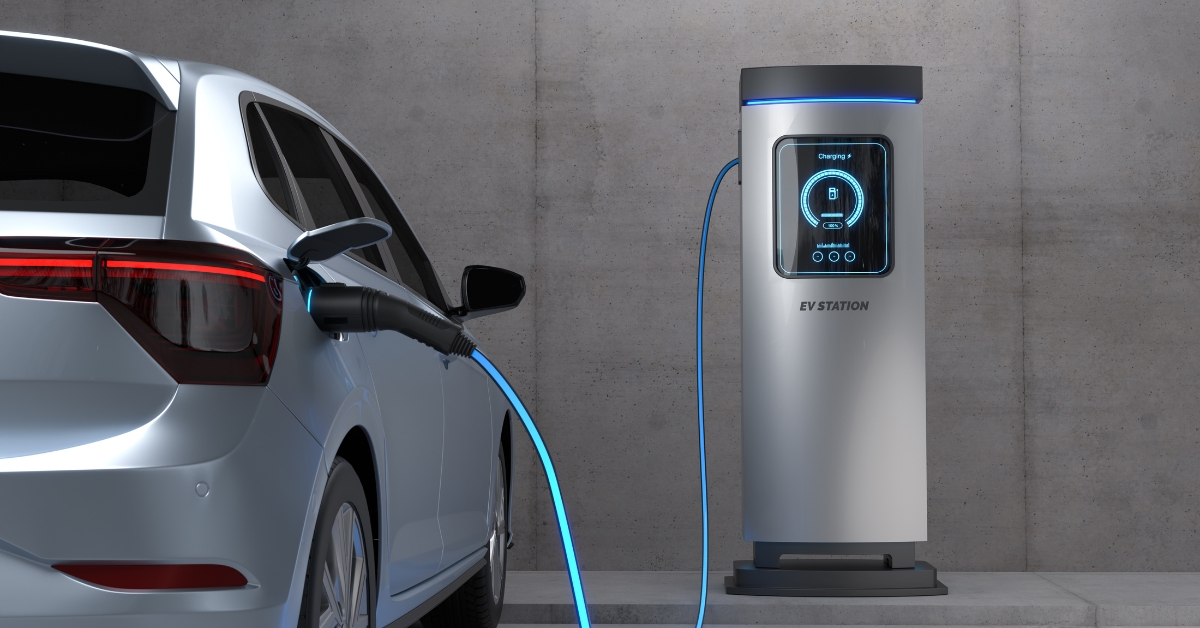
With the escalating concerns over climate change, more consumers are actively seeking ways to minimise their carbon footprint. While numerous small lifestyle adjustments can contribute to sustainability, a significant shift is occurring as many opt to replace traditional motor vehicles with electric cars. This transition not only supports environmental goals but also offers economic benefits in the long run.
As of 2023, electric car sales in the UK have surpassed the 250,000 mark, reflecting a robust upward trend (Statista, 2023). This surge is expected to continue, driven by advancements in technology and increasing consumer awareness. Despite the higher initial investment associated with electric vehicles (EVs), their cost-effectiveness over time makes them a compelling choice for environmentally conscious consumers. If you're curious about the latest trends and statistics in the electric car industry, Meteor Electrical has compiled some insightful data to help you make an informed decision.
Growth and Demand for Electric Cars in the UK
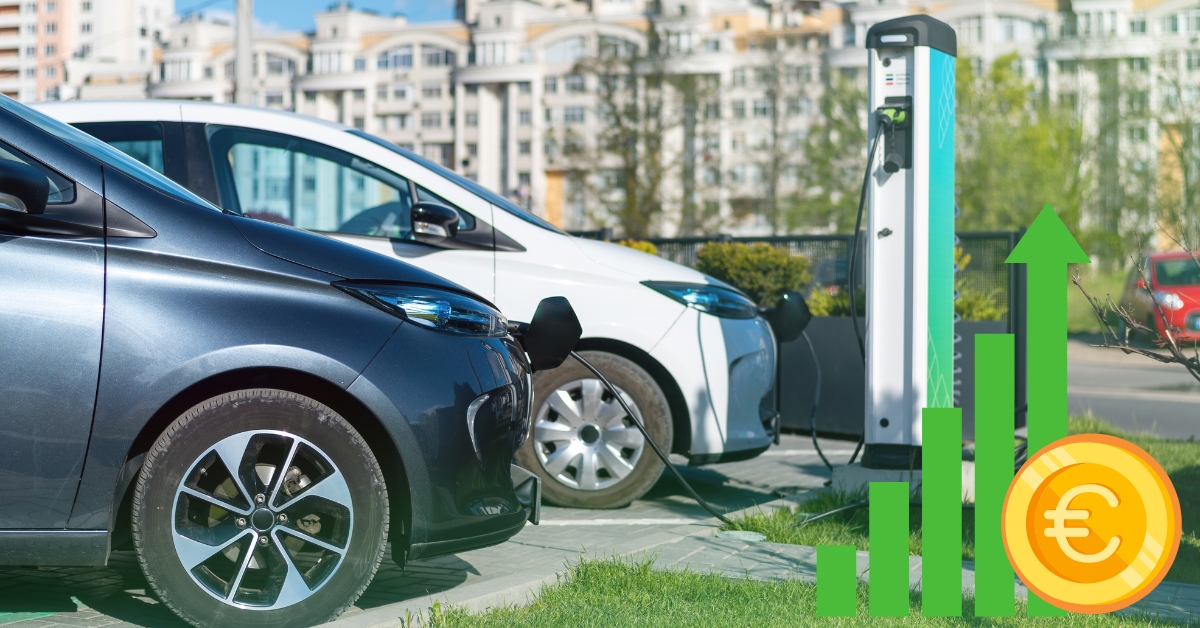
Electric vehicles are rapidly becoming some of the most sought-after motor vehicles globally. Over the past few years, a growing number of individuals have chosen EVs over traditional gasoline-powered cars, driven by both environmental concerns and the economic advantages of electric mobility.
Market Expansion
The global electric vehicle market was valued at approximately $18 billion in 2023, with market experts projecting a steady growth rate of 14% annually. By 2028, the market is expected to reach around $34 billion (Statista, 2023). This substantial growth underscores the increasing consumer demand and the industry's potential for innovation and expansion.
Leading the Charge in the UK
The United Kingdom stands out as one of Europe's largest markets for electric vehicles. In 2023 alone, the UK saw over 300,000 electric cars sold, a significant increase from previous years (Statista, 2023). This momentum is fuelled by government incentives, expanding charging infrastructure, and a broader selection of EV models available to consumers.
Credit: Tesla Jigsaw
Projected Sales Growth
Market experts forecast that plug-in electric vehicle sales will rise by 150% annually, while hybrid vehicle sales are expected to grow by 15% each year (Statista, 2023). This growth indicates a diverse and expanding market, catering to a wide range of consumer preferences and needs. Whether you prefer a fully electric vehicle or a hybrid model, there's an option available that aligns with your sustainability goals.
Electric Car Ownership Trends
As of early 2023, the UK boasts over 2 million electric cars on its roads, with numbers steadily increasing each year (GovUK, 2023). This surge in ownership highlights the growing acceptance and adoption of EVs among the general public. In Ireland, electric vehicles accounted for 25% of all new car registrations in the first half of 2023, marking a 20% increase from the same period in 2022 (CSO, 2023). These trends indicate a strong and sustained interest in electric mobility across the region.
Sales Projections
In 2023, approximately 800,000 vehicles sold in the UK were electric, with battery electric cars making up 250,000 of those sales and plug-in hybrids contributing 180,000 (Statista, 2023). Projections suggest that by 2028, annual EV sales could exceed 1.2 million units. This anticipated growth presents significant opportunities for manufacturers and highlights the importance of government support in fostering a sustainable automotive future.
Diverse Manufacturer Landscape
While Tesla remains the leading electric car manufacturer in the UK, capturing over 12% of the market share with the popular Model 3, other brands are also making significant strides. Notable manufacturers include:
- BMW - 10%
- Mercedes-Benz - 9%
- Audi - 7%
- Volkswagen - 7%
- Kia - 6%
- MG - 5%
- Volvo - 5%
- Hyundai - 5%
- Peugeot - 4%
- Other - 30%
| Manufacturer | Market Share (%) | Units Sold |
|---|---|---|
| Tesla | 12% | 36,000 |
| BMW | 10% | 30,000 |
| Mercedes-Benz | 9% | 27,000 |
| Audi | 7% | 21,000 |
| Volkswagen | 7% | 21,000 |
| Kia | 6% | 18,000 |
| MG | 5% | 15,000 |
| Volvo | 5% | 15,000 |
| Hyundai | 5% | 15,000 |
| Peugeot | 4% | 12,000 |
| Other Brands | 30% | 90,000 |
| Total | 100% | 300,000 |
| Data Source: Statista Electric Vehicle Statistics 2023 | ||
These figures demonstrate a competitive and diverse market, offering consumers a wide range of choices when selecting their ideal electric vehicle. This diversity encourages manufacturers to innovate continuously, ensuring that high-quality and efficient EV options are readily available to meet varying consumer needs.
Government Initiatives and Future Investments

The increasing demand for electric vehicles extends beyond personal cars. The UK government is also investing heavily in large-scale electric transportation solutions, including ultra-low emission motorcycles, buses, and coaches (Statista, 2023). With plans to phase out diesel and petrol vehicles by 2030, these initiatives are pivotal in reducing carbon emissions and promoting sustainable transportation alternatives.
Historical Growth in Electric Car Ownership
Electric vehicle ownership in the UK has seen exponential growth over the past two decades. From just 500 electric cars in 2000, the number soared to over 100,000 by 2015, and surpassed 800,000 by 2023 (GovUK, 2023). This remarkable increase underscores the accelerating shift towards sustainable transportation and the effectiveness of supportive policies and incentives.
In Ireland, the trend is equally promising. As of October 2023, there are over 80,000 electric vehicles registered, accounting for 18% of new car registrations (MoneyGuideIreland, 2023). This represents a significant jump from previous years, reflecting a robust and growing market for electric mobility in the region.
Overcoming Barriers to Adoption
Despite the clear advantages of electric vehicles, certain factors continue to deter potential buyers. In Ireland, for example, 60% of the population cites the purchase price as the primary barrier to switching to an electric vehicle (CSO, 2023). Addressing these cost concerns is crucial for manufacturers and policymakers to ensure broader accessibility and adoption of EVs. By developing more affordable models and providing financial incentives, the transition to electric mobility can be accelerated.
How Are Electric Vehicles Cutting Down Carbon Emissions?
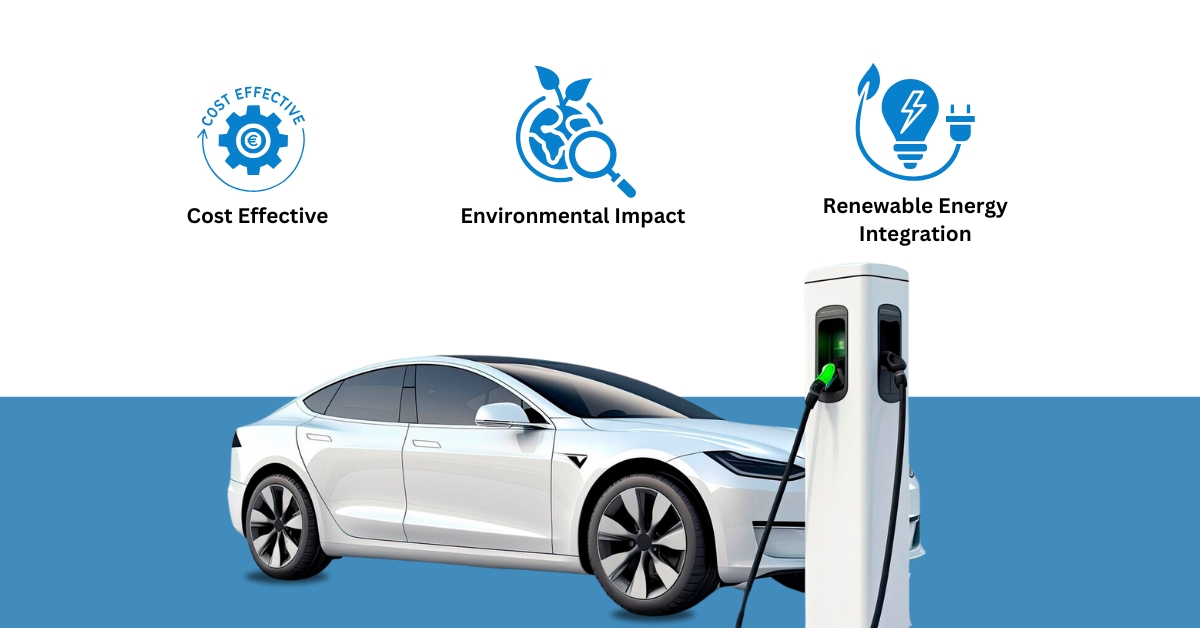
One of the most compelling reasons consumers are transitioning to electric cars is their significant impact on reducing carbon emissions. Traditional petrol and diesel vehicles rely on non-renewable fuels that contribute to environmental degradation and global warming.
Environmental Impact
Electric vehicles are renowned for their ability to drastically reduce carbon emissions. Research indicates that EVs emit 20-35% less carbon dioxide compared to their petrol or diesel counterparts (EDF Energy, 2023). While this reduction might seem modest on an individual level, the cumulative effect of widespread EV adoption can lead to substantial environmental benefits. Moreover, advancements in EV technology are continually improving efficiency and further lowering emissions.
Government Support and Legislation
Government policies play a pivotal role in promoting electric vehicles. In Ireland, for instance, legislation aims to have over 1 million electric vehicles on the road by 2030, with 900,000 of these being private passenger cars (MoneyGuideIreland, 2023). This initiative is part of a broader climate action plan designed to significantly reduce carbon emissions and combat global warming. By supporting EV adoption through favourable legislation, governments can drive meaningful progress toward sustainability goals.
Quantifying Emission Reductions
To put the impact into perspective, electric car drivers in the UK have collectively reduced carbon dioxide emissions by over 3 million tonnes since 2020 (The Co Experts, 2023). This achievement highlights the crucial role EVs play in mitigating climate change. As more individuals switch to electric mobility, these reductions will only continue to grow, contributing to a healthier and more sustainable planet.
Mileage and Carbon Footprint
Understanding how much an electric car can reduce your personal carbon footprint involves examining your driving habits. The average UK driver covers approximately 7,000 miles annually, emitting around 2.5 tonnes of carbon dioxide (NimbleFins, 2023). By switching to an electric vehicle and utilising a 100% green energy tariff, you can eliminate nearly half of your carbon footprint. As more people make this switch, the collective impact on reducing overall carbon emissions becomes even more significant.
Credit: Just Have a Think
Driving Trends and Sustainability
General driving trends also influence carbon emissions. In the UK, the average annual mileage decreased by 10% from 2020 to 2023, reflecting a shift towards more sustainable transportation practices (NimbleFins, 2023). This trend, coupled with the rising adoption of electric vehicles, presents a substantial opportunity for further reducing the nation's carbon footprint. Manufacturers and policymakers should leverage these trends by promoting electric mobility and investing in green public transport solutions.
Broader Environmental Benefits
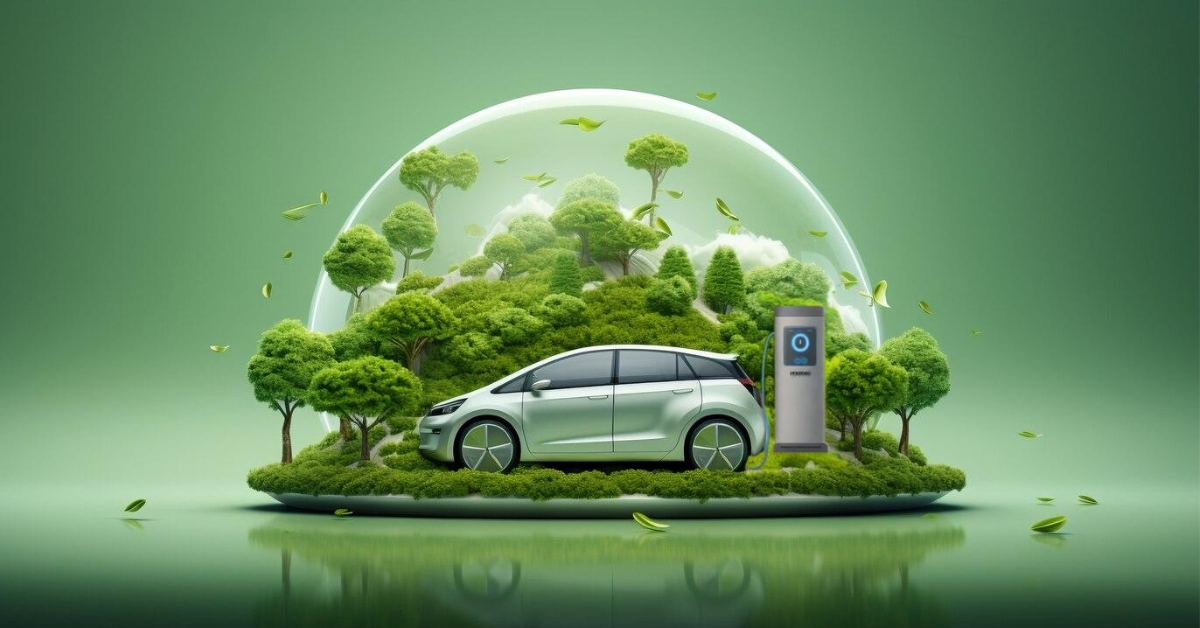
Transportation accounts for a significant portion of greenhouse gas emissions, particularly in Ireland, where it constitutes 40% of total emissions (SEAI, 2023). By transitioning to electric vehicles, consumers can play a vital role in reducing these emissions, thereby improving air quality and public health. The environmental benefits of EVs extend beyond carbon reduction, contributing to a cleaner and more sustainable environment for future generations.
Cost Savings and Environmental Impact
In addition to environmental benefits, electric cars offer considerable cost savings. The average cost of running a petrol car is around 22p per mile, whereas a fully electric vehicle costs approximately 12p per mile (The Co Experts, 2023). This significant difference in operational costs makes EVs not only environmentally friendly but also economically advantageous. By choosing an electric car, consumers can save money while contributing to a sustainable future.
Charging an Electric Car

The cost and accessibility of charging an electric car are crucial factors for potential buyers. While electric cars offer substantial environmental and economic benefits, understanding the infrastructure and costs associated with charging is essential for a seamless transition.
Expanding Charging Infrastructure
With the rising demand for electric vehicles in the UK, the infrastructure for EV charging stations is expanding rapidly. As of January 2023, there are over 35,000 charging points across the UK, including 6,000 rapid chargers (GovUK, 2023). Rapid chargers significantly reduce charging time, making EV ownership more convenient and practical for everyday use.
Growth of Charging Points
The number of charging points in the UK has seen impressive growth. Since January 2022, the UK government has increased the number of charging stations by 10,000, marking a 45% growth within a year (GovUK, 2023). This expansion ensures that EV owners have greater accessibility to charging facilities, reducing range anxiety and encouraging more people to make the switch to electric mobility.
Historical Surge in Charging Stations
The past few years have witnessed a substantial increase in electric vehicle charging stations across the UK. From 2018 to 2023, the number of charging points grew by over 500%, driven by government initiatives and private sector investments (The Co Experts, 2023). This rapid expansion highlights the commitment to supporting the growing EV market and ensuring that charging infrastructure keeps pace with vehicle sales.
Outpacing Petrol Stations
Interestingly, the number of electric vehicle charging stations in the UK now exceeds the total number of petrol stations. In 2023, there were approximately 12,000 petrol stations compared to over 35,000 EV charging points (UKPIA, 2023). This shift not only signifies the rising popularity of electric vehicles but also contributes to lower carbon emissions by reducing reliance on fossil fuels.
Home Charging Solutions
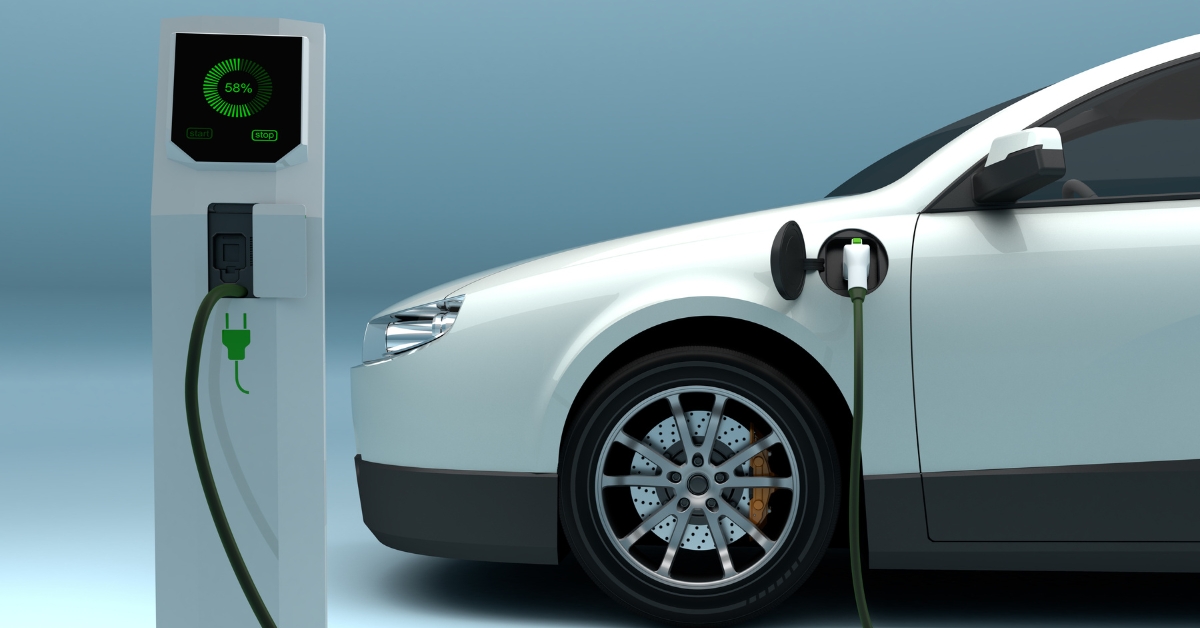
In addition to public charging infrastructure, many electric car owners are opting to install home charging stations. The cost of purchasing and installing a home EV charger typically ranges from £800 to £1,200, though more affordable options are available (The Co Experts, 2023). Home chargers offer the convenience of overnight charging, eliminating the need for frequent trips to public charging stations and further enhancing the cost-effectiveness of electric vehicles.
Renewable Energy Integration
To maximise the environmental benefits of electric vehicles, integrating renewable energy sources is essential. In the UK, efforts are underway to transition the national grid to 80% renewable energy by 2030, while Ireland aims for 75% renewable energy by the same year (SEAI, 2023). Utilising renewable energy for charging electric cars ensures that the entire lifecycle of EVs is sustainable, further reducing their carbon footprint.
Future Prospects for Charging Infrastructure
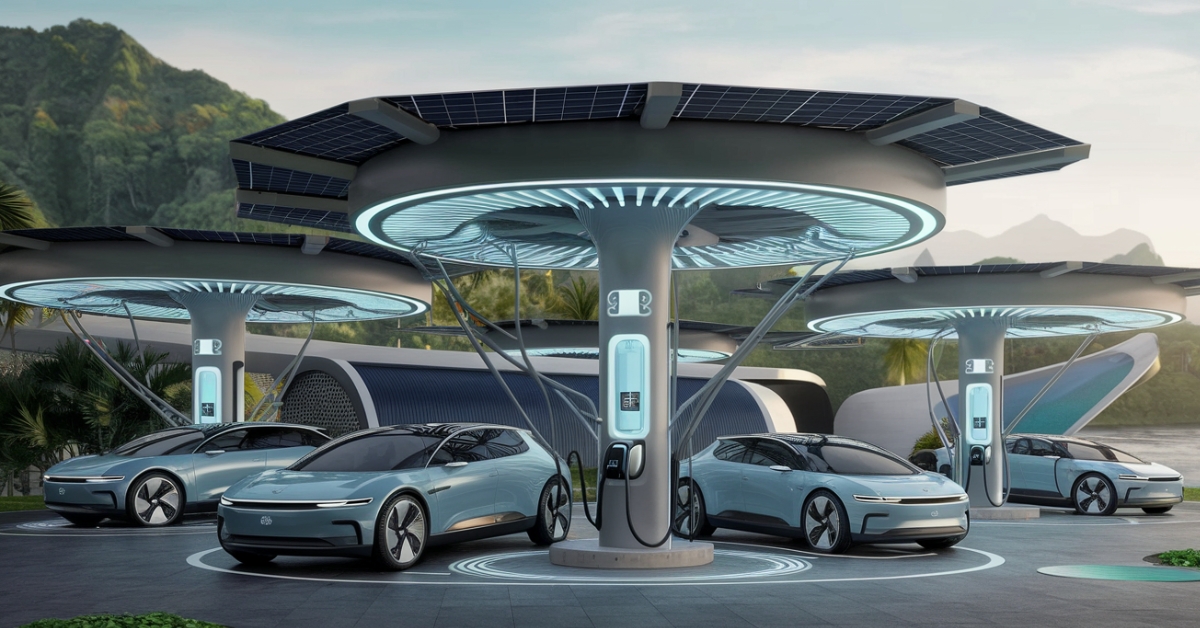
The electric car industry is poised for significant growth, with ample opportunities for expansion in charging infrastructure. As consumer demand continues to rise, manufacturers and energy providers are incentivized to develop innovative charging solutions. This includes the introduction of ultra-fast chargers, wireless charging technologies, and integrated renewable energy systems, all of which contribute to a more efficient and sustainable charging ecosystem.
Cost-Effective Charging Solutions
Despite the initial investment required for home charging stations, the long-term savings and convenience make them a worthwhile consideration. Additionally, government grants and incentives are available to help offset installation costs, making home charging more accessible to a broader range of consumers (GovUK, 2023). These measures support the widespread adoption of electric vehicles by reducing barriers to entry and enhancing the overall user experience.
The Role of Renewable Energy
The integration of renewable energy into the charging infrastructure is crucial for maximising the environmental benefits of electric vehicles. By leveraging solar, wind, and other renewable energy sources, the carbon footprint associated with charging EVs can be further minimized. This holistic approach ensures that the transition to electric mobility is aligned with broader sustainability goals and contributes to a cleaner, greener future.
Conclusion
The electric vehicle market is experiencing unprecedented growth, driven by increasing consumer demand, supportive government policies, and continuous advancements in technology. Meteor Electrical is committed to powering this transition by providing the latest insights and reliable solutions for electric mobility.
Key Takeaways:
- Market Growth: The global EV market is projected to reach $34 billion by 2028, with the UK and Ireland leading the charge.
- Environmental Impact: Electric vehicles can reduce carbon emissions by up to 35%, significantly contributing to sustainability goals.
- Charging Infrastructure: The UK now boasts over 35,000 charging points, surpassing the number of petrol stations and enhancing EV accessibility.
- Cost Savings: EVs offer substantial savings on fuel costs, with running costs nearly halved compared to traditional petrol cars.
- Government Support: Legislative initiatives in the UK and Ireland are pivotal in promoting EV adoption and reducing carbon emissions.
As the electric vehicle landscape continues to evolve, staying informed about the latest statistics and trends is essential for making educated decisions. Whether you're considering purchasing your first electric car or looking to expand your existing EV fleet, Meteor Electrical is here to support your journey towards a more sustainable and economically viable future.
For more information on electric vehicles and sustainable energy solutions, visit UK Government's Electric Vehicle Policy and SEAI's Electric Vehicle Resources.
FAQs about Electric Cars
1. What are the latest electric car sales figures in the UK?
As of 2023, electric car sales in the UK have surpassed 300,000 units, reflecting a significant increase from previous years. This growth is driven by government incentives, expanded charging infrastructure, and a wider variety of EV models available to consumers. (Statista, 2023)
2. How do electric vehicles contribute to reducing carbon emissions?
Electric vehicles (EVs) emit 20-35% less carbon dioxide compared to traditional petrol or diesel cars. By switching to EVs, drivers can significantly lower their carbon footprint, with the average UK driver potentially eliminating nearly half of their annual carbon emissions by using a fully electric vehicle powered by renewable energy sources. (EDF Energy, 2023)
3. What is the current state of electric vehicle charging infrastructure in the UK?
The UK now boasts over 35,000 charging points, including 6,000 rapid chargers, surpassing the total number of petrol stations. This extensive network ensures greater accessibility and convenience for EV owners, reducing range anxiety and encouraging more people to adopt electric vehicles. (GovUK, 2023)
4. What are the cost benefits of owning an electric car compared to a petrol car?
Electric cars offer substantial cost savings on fuel, with running costs around 12p per mile compared to 22p per mile for petrol cars. Additionally, electric vehicles require less maintenance, further reducing overall ownership costs. These savings make EVs not only environmentally friendly but also economically advantageous in the long run. (The Co Experts, 2023)
5. What government initiatives are supporting the adoption of electric vehicles in Ireland?
The Irish government aims to have over 1 million electric vehicles on the road by 2030, with 900,000 being private passenger cars. This initiative is part of a comprehensive climate action plan to significantly reduce carbon emissions. Additionally, incentives and grants are available to help offset the cost of purchasing and installing home charging stations, making EV adoption more accessible to consumers. (MoneyGuideIreland, 2023)

